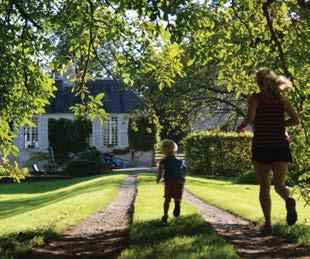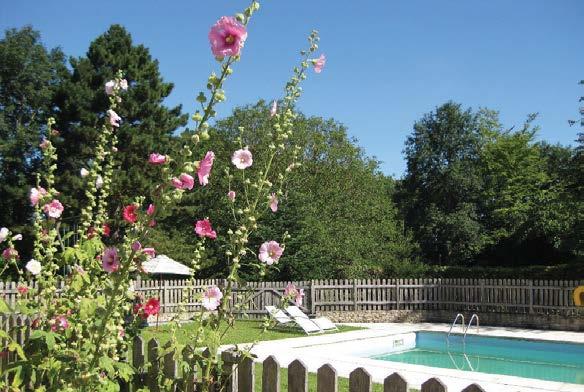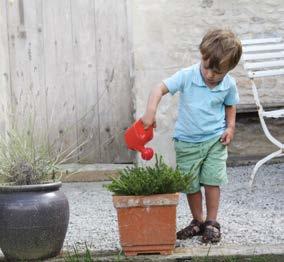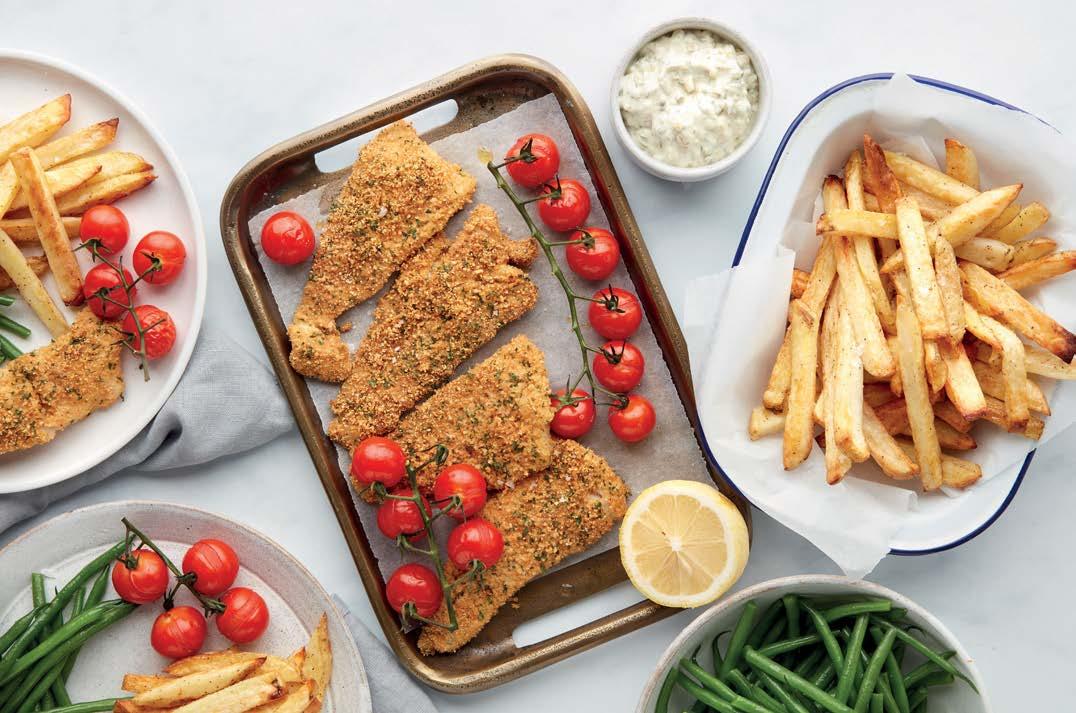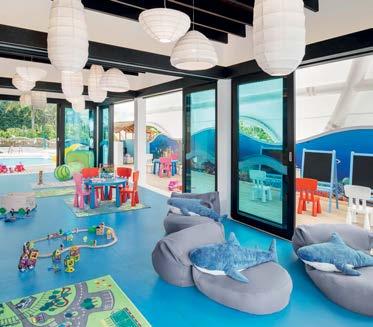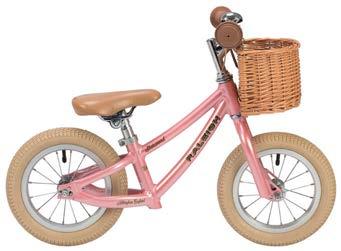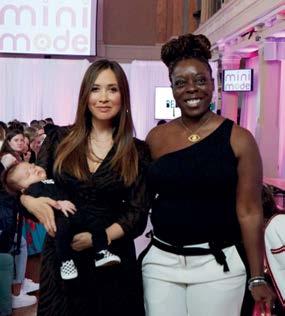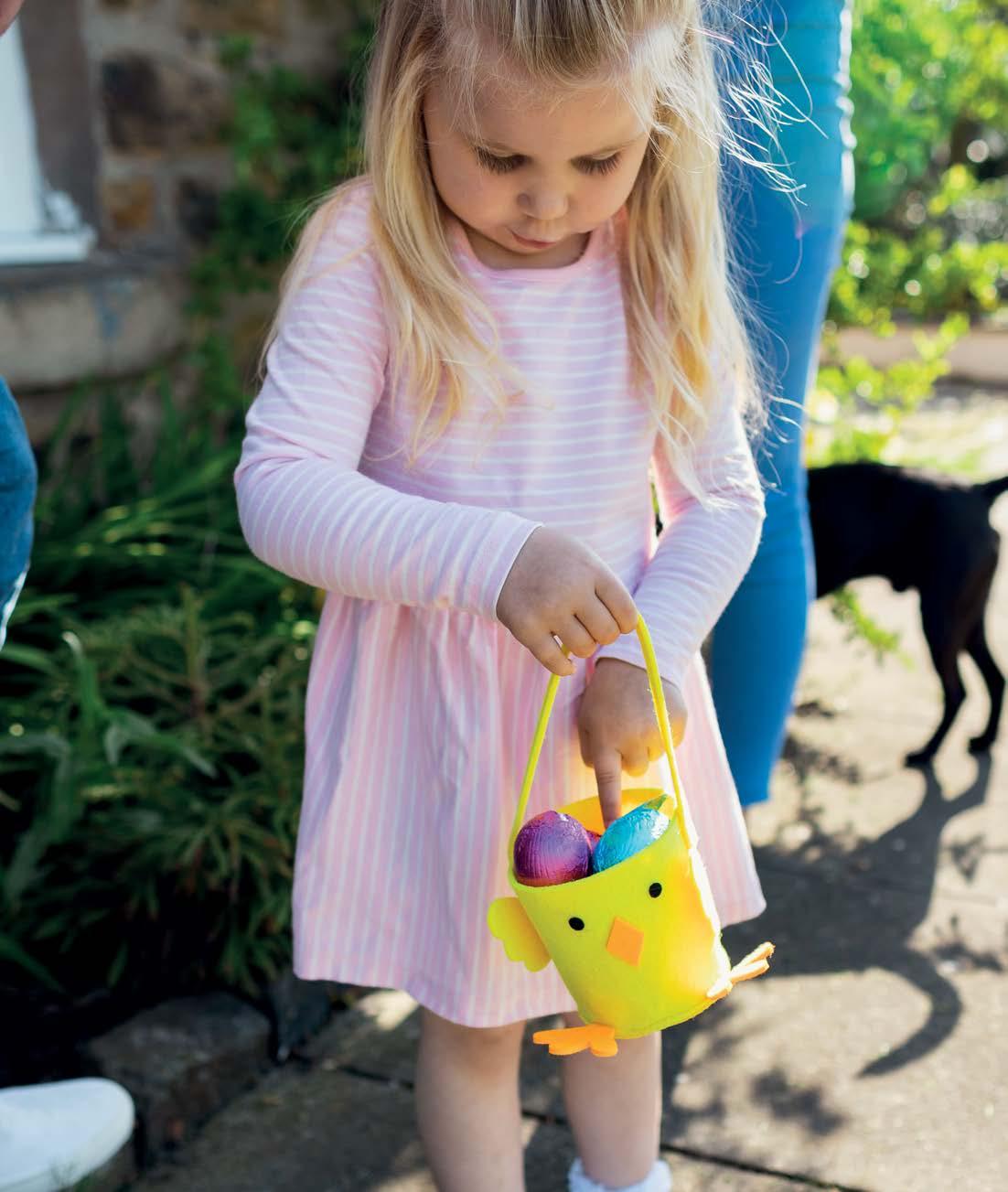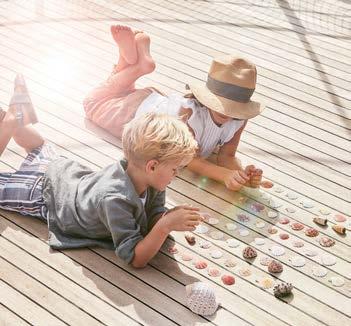
11 minute read
SPREAD THE LOVE







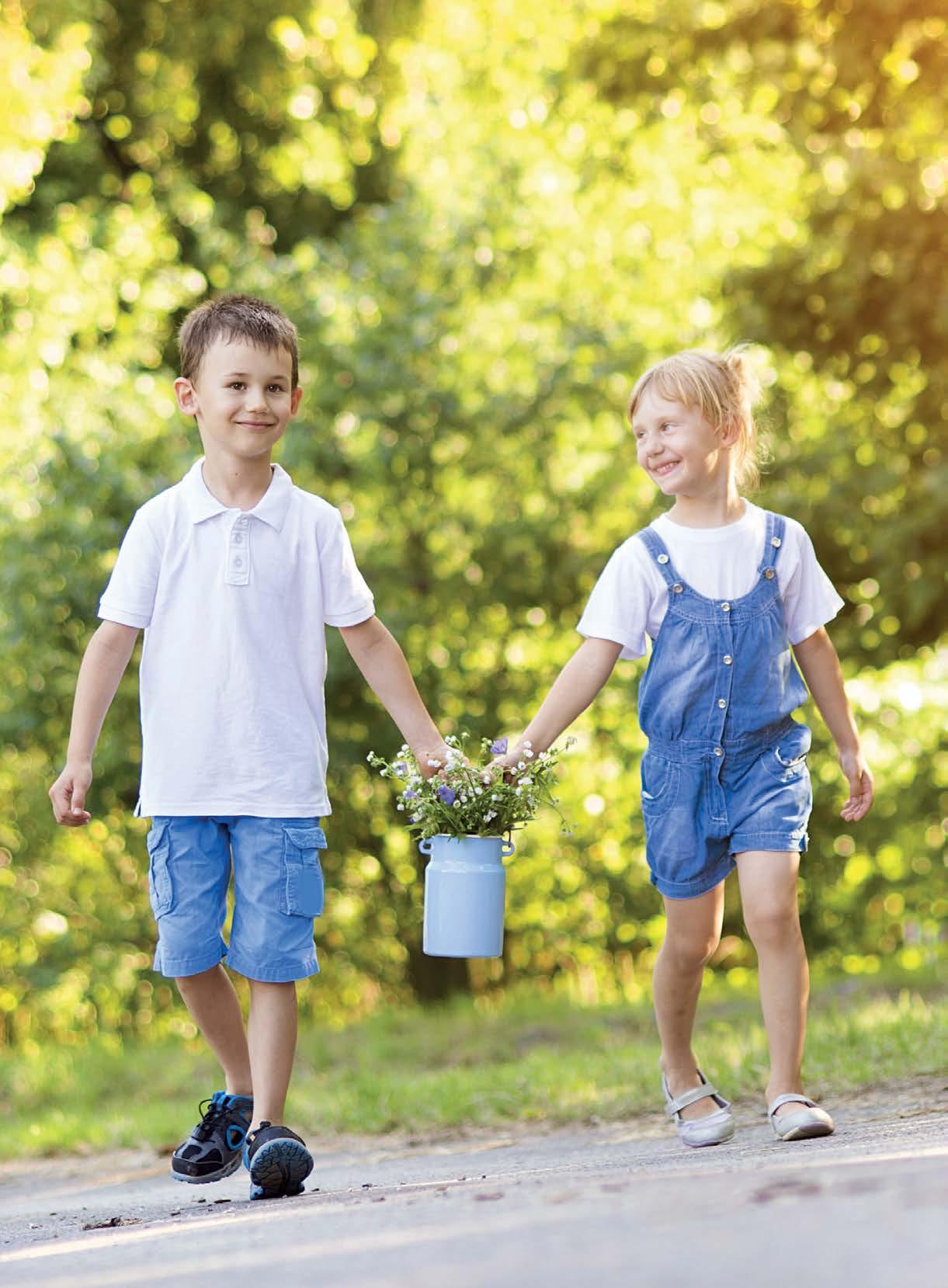













We can encourage children to be thoughtful, compassionate and inclusive by modelling kind behaviour ourselves
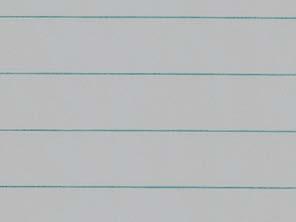














S P R E A D THE LOVE BECKY DICKINSON explores how to instil a sense of kindness in children












Afew days after the birth of my third child, in an exhausted postnatal haze, surrounded by chaos, laundry and half-dressed children, the doorbell went. I remember pushing piles of clutter out of the way to answer it, worried that I’d forgotten the midwife was coming. A woman I’d never met before stood on the doorstep and handed me an enormous parcel of food. I still remember the contents: a beef casserole and an apple crumble, with enough to put in the freezer. She said she’d heard I’d just had a baby and didn’t have any family around to help. en she left. I wished she’d stayed. But I’ll remember that act of kindness forever; so totally unexpected and so hugely welcomed that it still brings tears to my eyes.
Kindness is a powerful thing. It should be the norm, but we only have to read some of the comments on social media, or listen to the news, to know that it isn’t. Not always, anyway. Yet as parents we’re in a position to change that by instilling kindness in our children; encouraging them to be inclusive, helpful, compassionate human beings. And one of the best ways we can do this is to model kindness ourselves. Because in a world in which one in four people experience a mental health problem, the way we treat one another can help shape lives, communities, and ultimately the society we live in.
Research shows that acts of kindness don’t just enhance the lives of those on the receiving end, but are good for the giver’s wellbeing too. When we act kindly towards someone else, this triggers the brain to release endorphins, the hormones associated children to be kind seems as fundamental and as important as teaching them to brush their teeth. Fortunately, it’s also a natural human response. Gail Hugman, the author of 100 ings to Learn Before You’re 10, says, “Children are born with kindness in them, but sometimes, a child’s experience may cause them to become unkind at times; for example where there’s sibling rivalry or a lack of con dence and they feel vulnerable. eir lack of experience may lead them to
‘wrong conclusions’ – we usually hear it as ‘it’s not fair!” With over 40 years’ teaching experience, Gail says, “We can interpret unkind acts as a sign they need to have, a ‘mummy moment’, with a parent or someone they trust, who can remind them how unique, special and talented they are which will return them to the best of themselves.”
Hand in Hand parenting instructor, Kate Orson agrees. She says, “Empathy and kindness are natural human qualities that arise from within, but sometimes their own emotions and needs get in the way.” Kate adds that when it comes to kindness, modelling is much more e ective than teaching.
“Children know and feel deep down how ˝EMPATHY AND KINDNESS ARE NATURAL HUMAN QUALITIES THAT ARISE FROM WITHIN“ with happiness. As well as bringing about a ‘helper’s high’ this could even improve your health. is is because doing something nice for someone else has a stimulating e ect on the vagus nerve, which helps to regulate blood sugar and other bodily processes, thereby helping to protect against diabetes, strokes, heart disease and other conditions.
So, given the raft of bene ts for all involved – not to mention the urgent need for kindness in the world – encouraging
























Real kindness goes a little deeper than the kind behaviour we’re taught by SareQtal Ƃ Jures







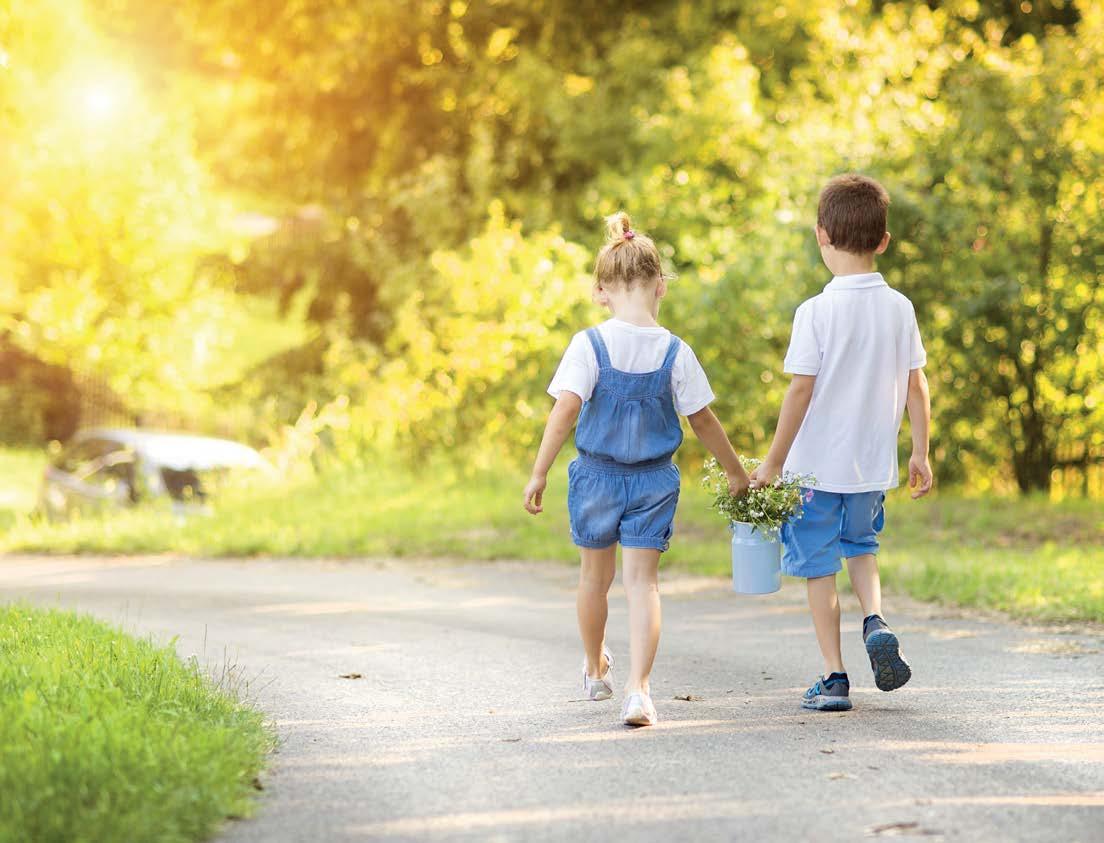



it is to be treated kindly and when they feel good, they want to be kind and spread the good feeling to others. When you teach or tell a child to be kind, they do it because they feel it’s the right thing to do or because they ‘have’ to – of course that has its place, but real kindness goes a little deeper than that, and comes more naturally.”
Often, we think of kindness as something we show towards the outside world. But Kate believes the best place to start is in your own home. “Be the kindness you want to see in your children.” She says. “Practise compassionate parenting, without punishment and reward. Don’t threaten to take away privileges if a child misbehaves. is kind of transactional parenting, will be internalised






by a child as a way to treat others. Set limits in a rm, gentle and loving way and seek help if you feel like you’re stuck on how to deal with challenging behaviour without resorting to rewards and punishments.”
Of course, one of the foundations of kindness is empathy. As parents, this means listening to our children and recognising their emotions, however misplaced they may seem. In doing so, we show our children how to put themselves in someone else’s shoes, helping them to grow into kind, sensitive and happy people. And this in turn helps to create a society where being kind is the norm. Because through kindness, we really can encourage our children to be a force for good and change in the world. L

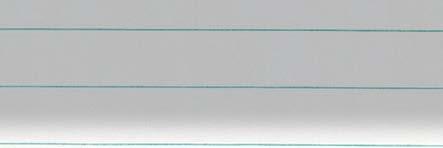
FURTHER READING



• Tears Heal: How to listen to our children, by Kate Orson (Piatkus) £13.99. Available from Amazon
• 100 Things to Learn before you’re 10 (The Endless Bookcase) by Gail Hugman, available from Amazon



• randomactsofkindness.org

Tales from the Round Table








This Easter at Chickenshed | 14 - 19 Apr For ages 3-7yrs

020 8292 9222 www.chickenshed.org.uk Registered charity no:1012369

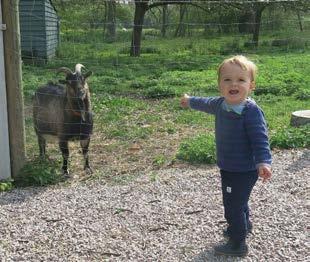
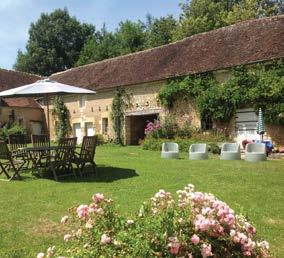
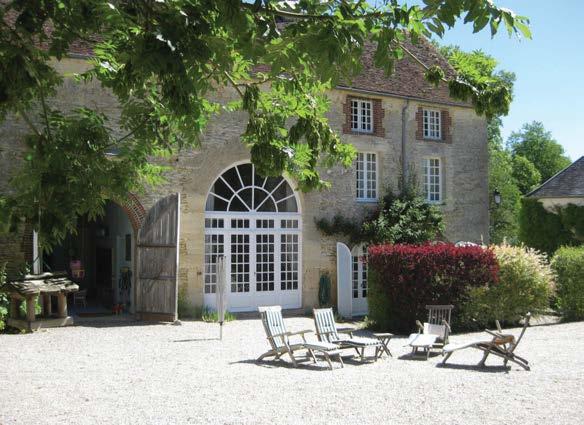
Create fabulous holiday memories in our beautifully renovated French cottages.
Children Portrait Photographer T: 07766542464 E: Lsouza64@gmail.com www.lousouza.com
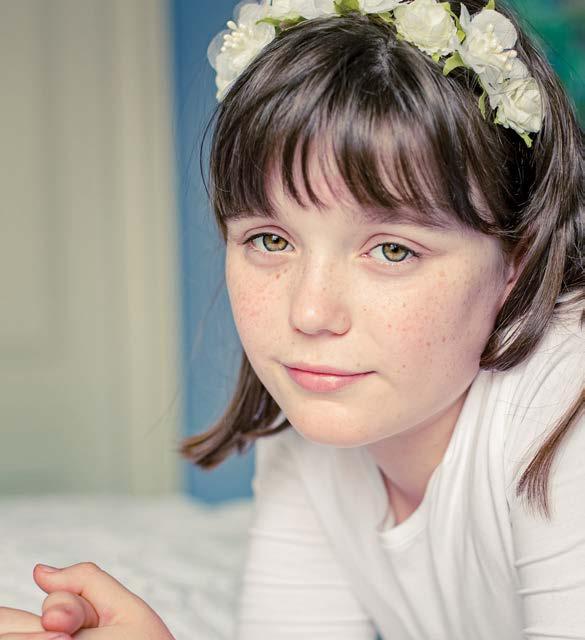
www.toddlerholiday.com
